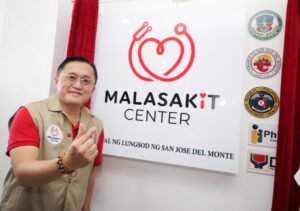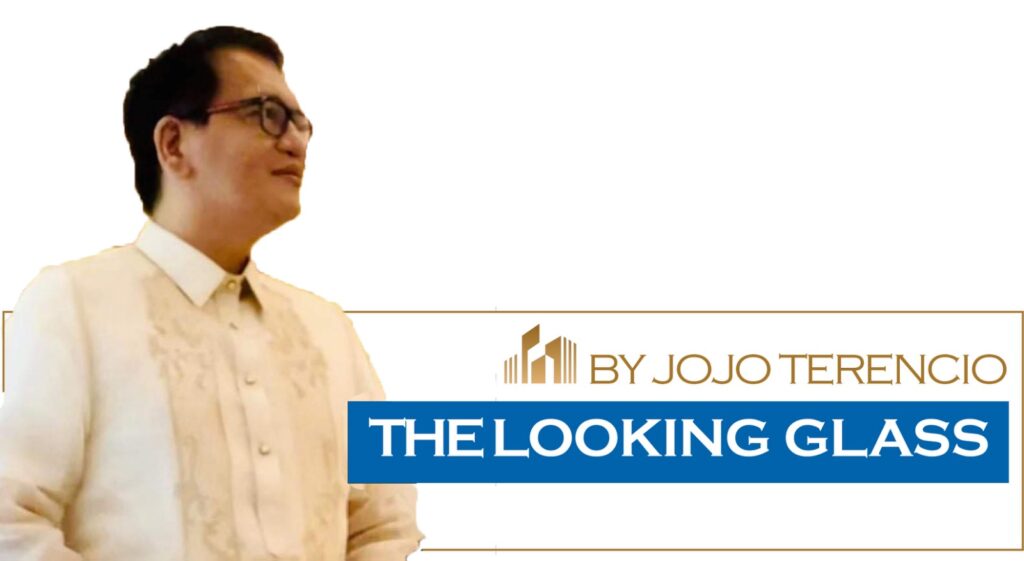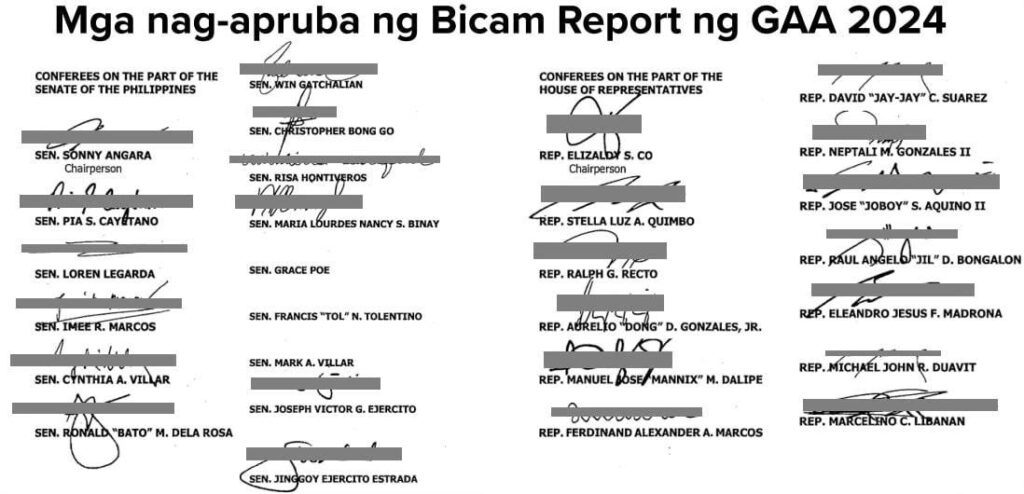📷: Sen. Christopher “Bong” Go (senatorbonggo.ph)
The most “epal” politician on this side of the planet is none other than Sen. Bong Go. He basks in being No. 1 in the senatorial race on account of his “Malasakit Centers,” which are another bureaucratic layer in the already heavily bureaucratized Duterte-Marcos Jr. administrations.
Not only his senatorial rivals but millions of Filipinos cannot understand why Go, who used to be the Man Friday of the unlamented detained ex-president Rodrigo Duterte, continues to paste his face and name on these “Malasakit Centers” that neither provide direct medical help nor quicken the pace of medical treatment. He is a creation of Rodrigo Duterte, but he and his family naturally benefited from his closeness to his big boss. Now that he has tacked his likeness and his name on these “Malasakit Centers,” people may think that he owns these centers and that without him, these referral offices would not have been created.
Isn’t he the same Bong Go who was roundly criticized when he purportedly pasted his face and name over donations for “ayuda” during the COVID-19 pandemic? The very same guy who opposed the ban on Chinese tourists from Wuhan after the pandemic outbreak since it was “nakahihiya” to the tourists while Duterte bragged that “babarilin ko ang virus na yan.” No wonder the country lost 60,000 Filipinos, many of them physicians and health workers who were overworked, underpaid, and underfed. He is the same Bong Go who was the boss of Lloyd Christopher Lao, the chief of the Procurement Service of the Department of Budget and Management (DBM-PS), whose work was indispensable to the awarding of the multibillion-peso awards for masks and other supplies to Pharmally. Bong Go is the same fellow who introduced Michael Yang to Duterte Sr. He is also the boss of Linconn Ong, another Pharmally executive who even had the audacity to be involved in dredging and reclamation projects that Duterte Sr. allowed to continue.
Yang was the chief financial backer of Pharmally, which was capitalized at only P625,000 but controlled more than P14 billion in pandemic supplies that should have been disbursed by the DOH but was shunted off to Lao for reasons only Duterte, Go, ex-DOH chief Francisco Duque, and Yang knew. Another corrupt Davao City family purportedly cornered the supply of face shields. Bong Go is now on Cloud Nine, talking about his victory, aided in no small part by commissioned surveys, paid keyboard warriors and glassy-eyed members of the Duterte cult, and by Chinese benefactors who had secured projects and business concessions during the past regime, from reclamation to dredging, the harvesting of sand and silt for the benefit of Chinese companies contracted to reclaim maritime features in the Spratlys and the West Philippine Sea (WPS) to prop up Beijing’s snatching of territories.
His pablum is daily fare at the Philippine Star and Daily Tribune (which he allegedly partly owns), dishing out strange stories about helping an ice cream vendor, sympathizing with fire victims, promising improved health and social services to make both Departments of Health (DOH) and Social Welfare and Development (DSWD) redundant. His diurnal glurge is appalling and his accomplishment as a lawmaker is dubious since he has failed to show that he has what it takes to debate, craft legislative proposals to improve the lives on millions and understand that his job description calls for him to draft laws and not show that he is just one of many bleeding hearts during campaigns. “Hindi utang na loob ng mamamayan kay re-elected Senador Bong Go ang Malasakit Centers. Ginagamit ni Go na kaalyado ng nakakulong na dating Pangulong Duterte ang Malasakit Centers para sa personal na adyenda — samantalang desesperado ang mamamayan sa makatao at libre sanang serbisyong medikal mula sa gobyerno,” rued Kilusang Magbubukid ng Pilipinas (KMP) chairperson Danilo Ramos. “Hindi galing sa bulsa ni Bong Go ang pondo ng Malasakit Centers. Galing ito sa buwis ng taumbayan — pero ikinakabit niya ang pangalan at mukha niya sa programa. Hindi ito malasakit, kundi malinaw na politikal clout chasing,” he added.
KMP said that at a time when most Filipinos are poor and could not seek medical help, Go shamelessly exploits those who are ill to show that “he is the savior of patients using a program that Congress had enacted and funded by taxpayer money.” Ramos said “hindi si Senator Bong Go ang Malasakit. At hindi utang na loob ng mamamayan ang serbisyo ng gobyerno. Karapatan ito ng taumbayan, at tungkulin ng estado na ibigay ito nang walang kapalit,” Ramos explained. “Ginagawang pantapal ang Malasakit Centers sa bulok na sistemang pangkalusugan, habang sinasagad ni Bong Go ang political mileage. Para sa kanya, ang bawat pasyenteng lumalapit ay boto at hindi buhay.”
Ramos disclosed that while Go proclaims himself as the champion of the destitute, the following facts from both the DOH and the Philippine Statistics Authority (PSA) should destroy his bragging: Five of 10 Filipinos die without seeing a doctor or visiting a hospital; 44.4% of medical bills are paid by patients out of pocket, despite PhilHealth subsidy or help from Malasakit Center, both of which are sorely lacking; 40% of more than 42,000 barangays nationwide have no decent health stations as they lack medicines, equipment and personnel, and; 75 patients die of tuberculosis (TB) daily despite the fact that the ailment can be treated by the public health system.
The Comelec and DOH already warned Go in 2019 to stop festooning hospitals with tarpaulins bearing his face and name to drum up the Malasakit Program, saying they violated election laws and that public funds were being used for his personal aggrandizement. Despite this, his old habit is in the pink of health, proclaiming himself as the principal architect of the program that the government finances. Go has not done anything to strengthen the health system like providing ample budgets for public hospital, decent pay for health workers and the establishment of comprehensive preventive care. Malasakit Centers are not the “one-stop shop” solution as patients have to do paperwork, seek proper connections and even the help of politicians to get medicines and medical attention. “Ang Malasakit Centers ay produktong nagpapamukha sa mahihirap na dapat tumanaw ng utang na loob, samantalang obligasyon at tungkulin ng gobyerno ang serbisyong pangkalusugan. Walang malasakit sa sistemang nagpapalimos ng serbisyo sa tao,” Ramos concluded. (DIEGO MORRA)




